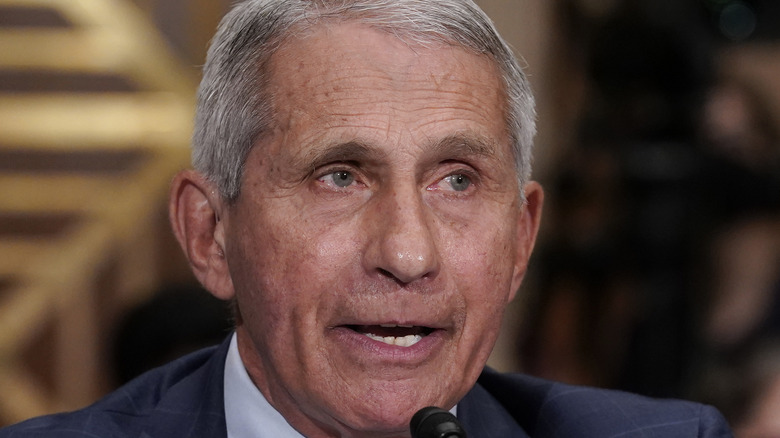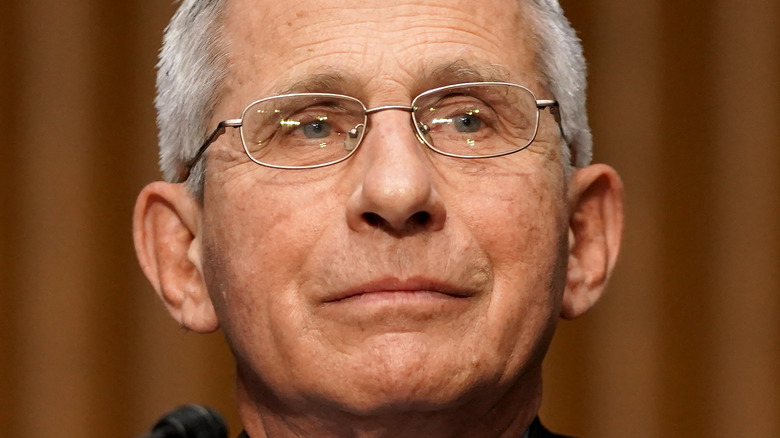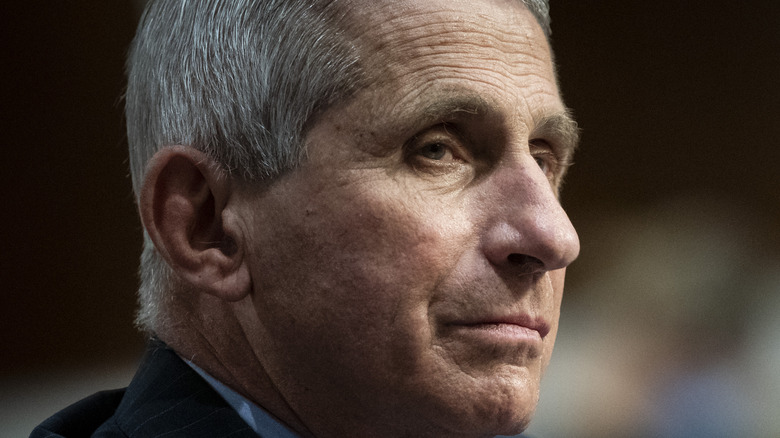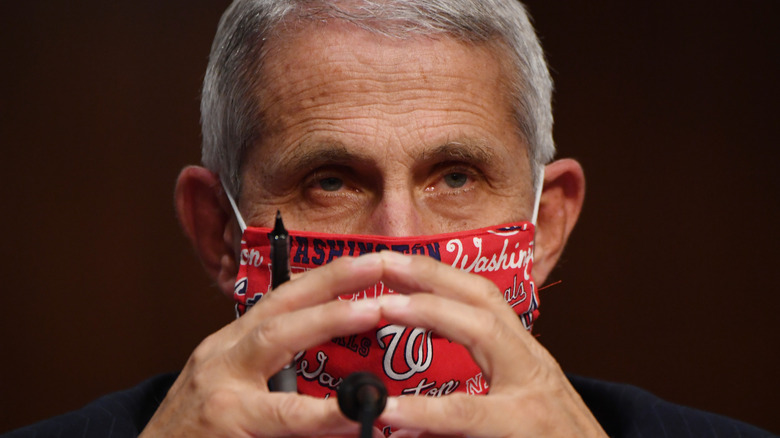What Dr. Fauci Did Before He Became Famous
Dr. Anthony Fauci became a household name in 2020 when he became what many thought of as the voice of reason in the Donald Trump administration regarding COVID-19. Perhaps that was because of his experience and expertise as an infectious disease doctor and his willingness to contradict the president when he felt it was necessary. When Trump left office after losing his 2020 re-election bid, Dr. Fauci didn't go anywhere and instead became a point man for the new Biden administration, delivering information to the weary and fearful about the pandemic and the various vaccines now available — all in a frank and understandable way.
Before he became famous, or rather the face of COVID-19 news that Americans needed, Dr. Fauci spent decades in the same official job he has today, as director of the National Institute of Allergy and Infectious Diseases (NIAID), a position he has held since 1984. When he began that job, the world was at the start of another viral pandemic, with Dr. Fauci working tirelessly behind the scenes (and sometimes in front of the cameras) to combat that virus, which still has no vaccine today.
How Dr. Anthony Fauci began his career
Dr. Anthony Fauci was born on Dec. 24, 1940, in Brooklyn, New York, to first-generation parents of Italian descent. An avid basketball fan, he eventually turned away from school sports and to medical school, graduating top in his class from Manhattan's Cornell Medical College in 1966 (via Biography.com). Just two years later, he started his work for the National Institute of Allergy and Infectious Diseases, and he only took a brief time off between then and now to serve as chief resident at the New York Hospital-Cornell Medical Center from 1970 to 1971.
At the NIAID, Dr. Fauci has been a leading researcher trying to combat some of the most common communicable ailments found across the globe, including malaria, tuberculosis, respiratory diseases, diarrheal diseases, and emerging infections like Zika and Ebola. Dr. Fauci is also known for his decades of work researching and developing treatments for HIV/AIDS, the pandemic that was emerging just as he was appointed to his current position during the Ronald Reagan administration (via NIAID).
Dr. Anthony Fauci became the voice for fighting AIDS
June 2021 marked 40 years since the first case of HIV/AIDS was recorded, and, at the time, it didn't have a name. Instead, it was known as a rare cancer found in queer men.
When Dr. Anthony Fauci first saw the description of the disease in the CDC's Morbidity and Mortality Weekly Report (MMWR), he was horrified. "I was totally baffled, and did not know what was going on. I thought it was a fluke," he told Science Friday. "I made a decision literally when I was reading that horrifying MMWR. I had never seen anything like this in otherwise healthy young people. And I said, 'I'm going to change the direction of my research. And I'm going to study these young gay men who have this terrible disease.'"
Dr. Fauci went on to advise decades' worth of presidential administrations about HIV and AIDS while also becoming a leading doctor responsible for the cocktail of treatments that make HIV a disease people can live with rather than one people necessarily have to die from. He did this by having patients actively involved with drug trials and giving their own input, allowing them access to experimental and life-saving treatments, according to NPR.
Dr. Anthony Fauci emerges as a calm and trusting voice on COVID-19
In 2021, Dr. Anthony Fauci is the go-to doctor for most media outlets to offer honest and open thoughts about COVID-19 and the vaccines that can prevent it. When he tried to serve in this role during the year prior, when Donald Trump was still president, he was banished from the White House coronavirus treatments and had to walk a fine line to not anger the president when he did give interviews. He was also kept out of the coronavirus advisory meetings, according to The Washington Post.
When Joe Biden became president, Dr. Fauci became a trusted and involved advisor to the new administration and began speaking more freely about COVID. In 2020, he explained to The New Yorker how he's managed to survive as a physician in a political world. "You stay completely apolitical and non-ideological, and you stick to what it is that you do," he said. "I'm a scientist and I'm a physician. And that's it."



